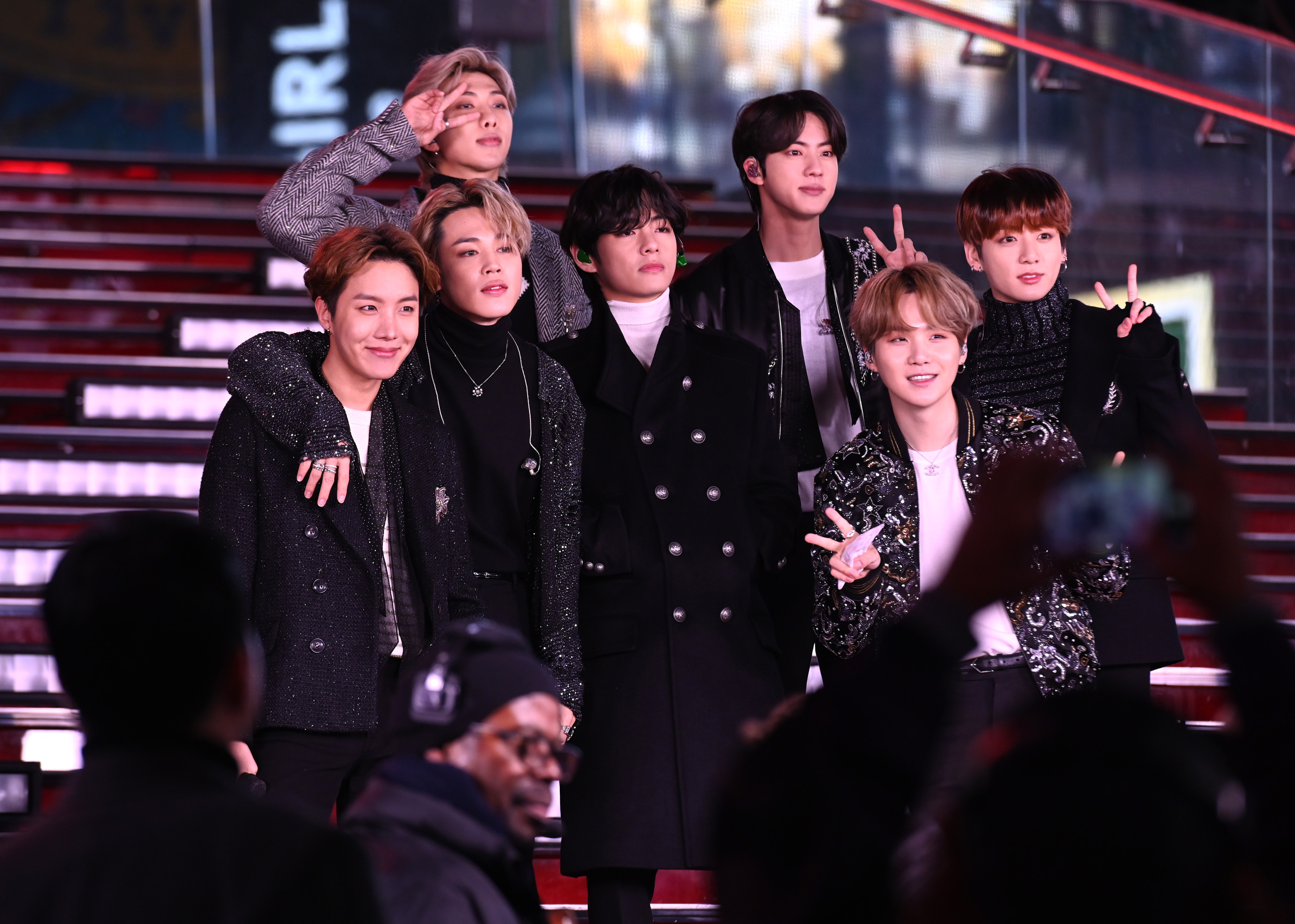BTS Proved They Are Not a Fad — So Why Are They Still Treated Like One?
It seems that no matter how big BTS gets, the general public is waiting for the group to fade away. By 2020, the Korean band has repeatedly proved they are not a fad, yet the media and music industry continually look for ways to pass off BTS as a phenomenon that will eventually come to a halt.

Fans take issue with an upcoming TIME special edition
Recently, it was revealed TIME will be releasing a special edition featuring BTS at the end of July 2020. The 96-page book will feature a compilation of interviews BTS partook in over the years, art, photos, and articles.
However, based on preview images, ARMY was disappointed to discover that the issue appears to feature tired and inaccurate stereotypes about the band and K-pop, ranging from mandatory military enlistment to the Korean music industry being viewed as a “factory.”
It is disheartening and exhausting to see that even after BTS has become mainstream, there is still a disconnect between how BTS is portrayed in the media and the BTS that fans know.
RELATED: When Will BTS Be Treated Like Artists?
The group is still not portrayed in an accurate way
While there are journalists and media outlets who are the exception to this unfortunate rule, a large amount of media coverage comes across as poorly-researched at best and xenophobic at worst. Publications often sensationalize BTS’s success. Instead of being referenced as artists, they are referred to as a phenomenon, insinuating that their success is not explainable.
Except the reason behind BTS’s gradual rise to fame is easily accessible. There are years worth of BTS Episodes and Bangtan Bombs on YouTube, showing a behind-the-scenes perspective of the band members’ careers.
The band has a free variety web series called Run BTS! that first premiered in 2015. Through the show, fans get to see BTS’s humorous sides as they compete in competitions and play games with each other. There are documentaries and docu-series available where the members discuss their experience in the band more in-depth than any interview.
When one examines their music and the messages behind each era, one can find why the music resonates with ARMY. All of this information is readily available online, yet so few seem to use it when investigating BTS’s success.
What happens when BTS is not researched properly
Unfortunately, when BTS is written out to be an unexplainable phenomenon, xenophobia occurs. Objectively, no industry or public figure is or should be above criticism. However, there is a difference between criticizing public figures and dehumanizing them because they are from a different country.
While all celebrities use public personas, when idols do they are thought of as manufactured. Because idols spend years training in dance, singing, rapping, and music production before debuting, the K-pop industry is perceived as a factory. This gives the xenophobic impression that all idols are carbon copies of each other and it discredits the fact that each idol has their own personality and skill set.
In an interview with TIME, Bang Si-hyuk, the co-CEO of BTS’s label Big Hit Entertainment, said he feels this perception is because of a lack of perspective.
“First, I believe in the West there is this deeply embedded fantasy of the rock star — a rock star acts true to their soul and everyone must accept it as part of their individuality, and only through that does good music come. But in reality, devoting a long time to honing and training music-related skills is a tactic used in many professional art worlds. Ballerinas spend a long time in isolation focused only on ballet, but you don’t hear people say ballet lacks soul or isn’t art. So I think it’s a matter of perspective.
Another layer is that in the U.S., an artist will work in the underground scene for many years before signing with a major label. In Korea, that time is spent as a trainee.”
BTS will not just fade away after this year
It would be unrealistic and unhealthy for an artist to continue at an upward trajectory forever. Life is filled with ebbs and flows, and with music constantly evolving, it is healthy and normal for a musician to have peaks and valleys in their career. It is also normal for artists, especially in the U.S., to take years in between each album.
However, media continuously brings up BTS’s impending military enlistment. Based on a preview of the upcoming TIME special edition, the magazine alludes to the idea that some fans will not be fans of BTS when their military enlistment is over.
It pushes the narrative that fans are plagued with worry over what will happen to BTS when enlisting begins. However, 2020 has already shown what will happen: Fans will keep supporting BTS.
RELATED: BTS Just Broke a 5-Year-Old Record Set by Adele With Their Song ‘Black Swan’
Follow Eryn Murphy on Instagram and Twitter.
In 2020, BTS’s album Map of the Soul: 7 debuted at No. 1 on the Billboard 200 chart, becoming their fourth No. 1 album in less than two years. Suga’s solo mixtape D-2 peaked at No. 11 on the Billboard 200 and No. 1 on Billboard’s US World Albums chart.
With “Black Swan,” a song co-written by RM, BTS broke Adele’s five-year-old record of having a song with the most No. 1s on iTunes. A few days later, V of BTS broke his group’s own record with his solo song “Sweet Night.” The group’s Japanese track “Your Eyes Tell,” which was composed by Jungkook, has reached 100 No. 1s on iTunes.
Whether it is watching Run BTS! and new Bangtan Bombs, supporting a member’s solo activities, or buying a sub-unit album, it is clear fans will support the band no matter what BTS and Big Hit Entertainment do during enlistment. Because of this, it is time to end the narrative that BTS will suddenly become obsolete.


